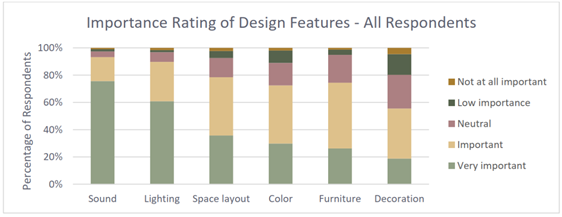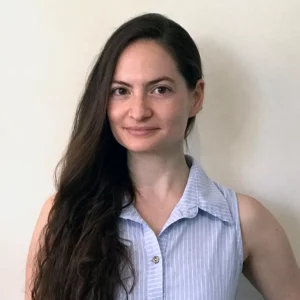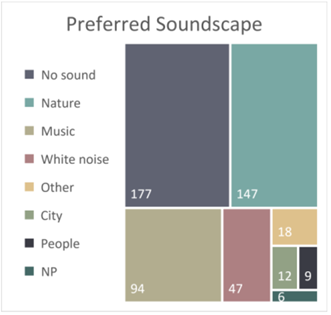
At EIAS 2023 we were lucky to be joined by Toar Sadia, Senior Inclusive Design Consultant at Buro Happold. Toar gave an interesting and insightful talk on the importance of the design of quiet spaces. And the views and preferences of neurodivergent populations for design aspects of the space.
Neurodivergent populations
A quiet space (sometimes known as a restorative space) offers people a mentally quiet environment that provides respite from sensory overload. People who have sensory processing differences are often susceptible to experiencing sensory overload and can therefore benefit from having access to a quiet space. Currently, there is a lack of guidance on how to design inclusive quiet spaces. And ambiguity regarding the factors which influence design preferences.
Design preferences

In her research, Toar focused on 6 design aspects, including acoustics, when looking at what made a restorative environment successful at responding to user needs. She issued an online survey to gather data and conducted interviews to add detail. The survey was available to neurodivergent populations globally.
We are all individuals with unique brains and sensory profiles. The survey responses reflected that by showing a diverse range of preferences for many aspects of the design. Out of the design aspects, sound and lighting consistently emerged as the most important design considerations for quiet spaces, with connections to nature emerging as a favoured theme.
People liked low levels of sound and sounds of nature, with a preference for sounds of water. It was noted, however, that simulated, or repetitive, nature sounds may be perceived as intolerable. Additionally, the preference for no sound was shown to be associated with hypersensitivity. While the preference for music was shown to be associated with hyposensitivity.
The data showed that no solution met everyone’s needs, so variety, flexibility and control should be key in developing an inclusive space. This would mean a quiet (but not silent) space with optional additional sounds on an individual basis.
Whilst this study was on the views of neurodivergent populations, Toar thinks it would be useful to consider others who may be susceptible to sensory overload. Such as people experiencing migraines, anxiety, or Post Traumatic Stress Disorder, in future research on quiet spaces.

Watch Toar´s EIAS2023 presentation here and find the abstract here!


